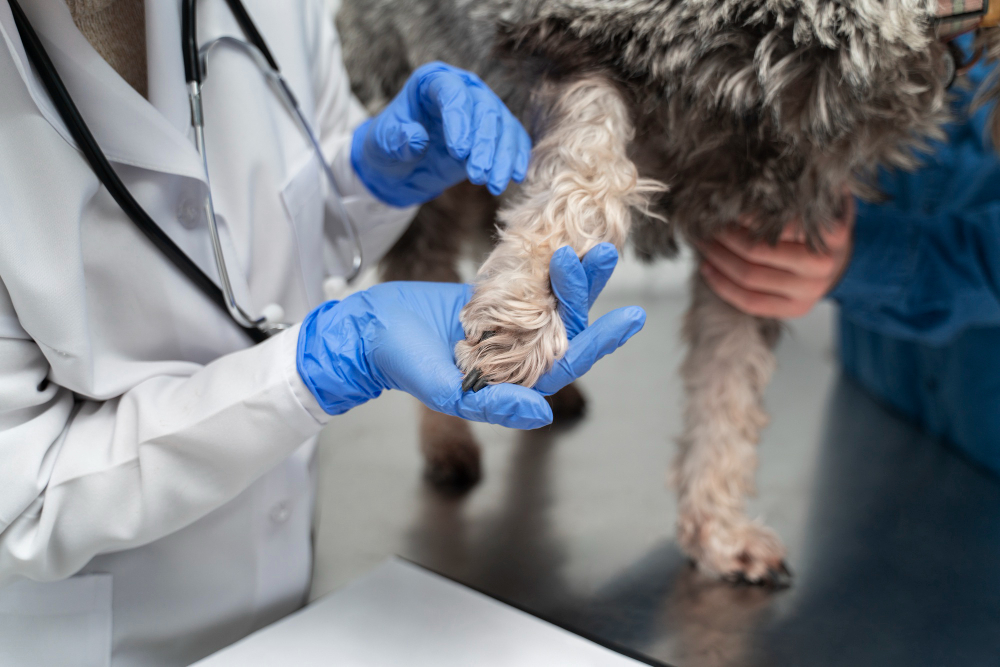Caring for Your Pet Through Cancer: A Compassionate Guide

Caring for Your Pet Through Cancer: A Compassionate Guide

Learning that your beloved pet has cancer can feel overwhelming. The diagnosis brings a flood of emotions—fear, sadness, confusion, and countless questions about what lies ahead. While this journey is undeniably difficult, understanding your options and knowing that compassionate care is available can provide comfort during this challenging time.
Cancer affects pets much like it affects humans, and the treatment decisions you'll face require careful consideration of your pet's quality of life, your family's circumstances, and your furry friend's individual needs. Whether you're exploring treatment options or considering end-of-life care, you don't have to navigate this path alone.
Understanding Pet Cancer and Its Impact
Cancer in pets manifests in various forms, from lymphoma and bone cancer to skin tumors and internal masses. The progression and symptoms depend largely on the type and stage of cancer your pet is facing. Some pets may experience pain, decreased appetite, difficulty breathing, or changes in behavior, while others might show few symptoms initially.
Veterinary oncology has advanced significantly, offering treatments like chemotherapy, radiation, and surgery that can extend life and improve comfort for many pets. However, these treatments aren't right for every situation. Factors such as your pet's age, overall health, cancer stage, and temperament all play crucial roles in determining the best course of action.
Making Treatment Decisions with Your Pet's Best Interest at Heart
The decision-making process following a cancer diagnosis involves weighing multiple factors. Your veterinarian will discuss treatment options, potential outcomes, and quality of life considerations. Some pets respond well to treatment and enjoy months or even years of good quality life, while others may not be candidates for aggressive intervention.
Consider your pet's personality and stress levels when evaluating options. A dog who becomes extremely anxious during vet visits might not be well-suited for frequent chemotherapy sessions, while a more adaptable pet might handle treatment better. Financial considerations are also valid and important—cancer treatment can be expensive, and it's okay to factor costs into your decision-making process.
Recognizing When Quality of Life Is Declining
As cancer progresses, monitoring your pet's quality of life becomes paramount. Veterinarians often use quality of life scales that evaluate factors like pain levels, appetite, mobility, and engagement with family activities. These assessments help determine when treatment is still beneficial versus when comfort care might be more appropriate.
Signs that your pet's quality of life may be declining include persistent pain despite medication, inability to eat or drink, difficulty breathing, loss of interest in favorite activities, and changes in bathroom habits. Keep a daily journal noting your pet's good days and bad days—this record can help you and your veterinarian make informed decisions about care.
The Role of Palliative and Hospice Care
Palliative care focuses on managing pain and symptoms to keep pets comfortable, whether they're receiving treatment or not. This approach can significantly improve quality of life during cancer treatment or as an alternative to aggressive intervention.
Hospice care for pets provides comfort-focused care when curative treatment is no longer appropriate or desired. This doesn't mean giving up—it means shifting focus to ensuring your pet's remaining time is as comfortable and meaningful as possible. Hospice care can include pain management, nutritional support, and emotional support for both pets and families.
When to Consider In-Home Euthanasia
One of the most difficult decisions pet owners face is determining when it's time to say goodbye. In-home euthanasia offers a peaceful, comfortable alternative to clinic visits during this emotional time. This service allows your pet to remain in familiar surroundings, surrounded by family, without the stress of travel or unfamiliar environments.
In-home euthanasia in Reno, NV provides families with a gentle, dignified way to help their pet transition peacefully. Mobile veterinarians who specialize in end-of-life care understand the unique needs of families facing this decision and can provide guidance, support, and compassionate care in the comfort of your home.
The process is typically calm and peaceful, allowing you to focus on being present with your pet rather than managing logistics or dealing with the clinical atmosphere of a veterinary hospital. Many families find that in-home services provide closure and comfort that helps with the grieving process.
Supporting Your Family Through This Journey
Cancer affects the entire family, including children and other pets in the household. Open, age-appropriate communication helps everyone process what's happening and participate in caregiving and decision-making as appropriate.
Children often have questions and fears about their pet's illness. Honest, gentle explanations can help them understand the situation and feel included in the pet's care. Consider involving them in comfort measures like gentle brushing, special treats, or simply spending quiet time together.
Other pets in the home may sense changes in their sick companion and in the household's emotional climate. Maintaining routines and providing extra attention can help reduce their stress during this uncertain time.
Finding Professional Support and Resources
Veterinary professionals who specialize in oncology and end-of-life care can provide invaluable guidance throughout your pet's cancer journey. These experts understand the medical aspects of the disease as well as the emotional toll on families.
Support groups, both online and in-person, connect pet owners facing similar challenges. Sharing experiences with others who understand the unique bond between pets and their families can provide comfort and practical advice.
Pet loss counselors and hotlines offer professional support for families struggling with anticipatory grief and the eventual loss of their companion. These resources recognize that pet loss is a significant form of grief deserving of support and understanding.
Moving Forward with Compassion and Love
Caring for a pet with cancer requires balancing hope with realistic expectations, medical possibilities with quality of life considerations, and your own emotional needs with your pet's well-being. There's no single right answer—only the choices that feel right for your specific situation.
Remember that choosing comfort over aggressive treatment, or deciding when to say goodbye, are acts of love, not failure. Your pet has been fortunate to have a family who cares deeply about their well-being and is willing to make difficult decisions in their best interest.
The time you have left together, whether weeks, months, or longer, can still hold meaning, joy, and connection. Focus on the simple pleasures your pet still enjoys—favorite foods, gentle pets, sunny spots for napping, or quiet time together.
If you're considering in-home euthanasia in Reno, NV, contact Rover Veterinary Care today for more information about compassionate end-of-life services that honor the special bond you share with your pet.
